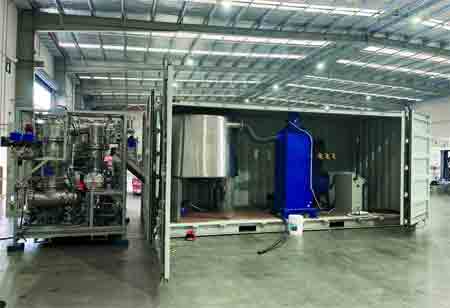Chemical recycling can reduce the quantity of plastic in landfills, lowering the risk of dangerous chemicals being discharged into the environment.
FREMONT, CA: Plastic, which takes millions of years to debase and pollutes ecosystems globally, is a widespread environmental scourge. In recent decades, efforts to recycle waste material have been a basic local and national government policy but are inadequate.
Plastic is difficult to recycle precisely as it possesses an advantageous property: extreme durability. Unfortunately, this means that most plastic is still physically in the environment.
It enters soil, waterways, and food chains through the bodies of animals and humans. As a result, it harms human and animal health and may wreak havoc on the planet's inhabitants and ecosystem.
Besides its long life in the environment, plastic's longevity makes recycling notoriously hard. Today, only 9% of all plastic ever produced has been recycled.
The problem will not be resolved. Around the world, over 380 million tons of plastic are generated each year. Currently, 40% of plastic waste is dispatched in a managed landfill, 25% is burned in an incinerator, and 19% is illegally dumped. In addition, only 16% of newly produced plastic waste is recycled.
Even recycled plastic waste and abandoned items are regularly unable to be recycled effectively. Customarily mechanical recycling processes need sorting, cleaning, shredding, melting, and remoulding plastic into new products.
Yet, this technique generates a lower-quality material, and many uses, along with food and medical packaging, continue to count on virgin plastics from fossil fuels. This is as polymer chains break down during the melting process, reducing the resulting materials' tensile strength and viscosity.
Every time plastic is recycled in this method, the following material degrades. Finally, plastic that has been recycled continually turns unusable.
Conventional mechanical plastic recycling needs considerable sorting and packing processes that are both energy and labor-intensive. As a result, businesses that function as traditional commercial-scale recycling plants frequently rely on government allowances to stay afloat.
Chemical recycling may be the key to resolving these issues. It needs significantly less waste separation in advance and produces high-quality polymers appropriate for high-end plastic applications.
Polymer chemistry—the branch of chemistry that analyses plastics and their manufacture, characteristics, and properties—has increasingly focused on chemical recycling.
Chemical recycling transforms hard plastic revert to the oil from which it was built, which can then be utilized to form new high-quality plastic products. Although the chance of recycling plastic in this manner has resided for decades, it was before unviable. This is because of the high energy needs for most chemical recycling techniques proposed so far.
When energy costs are involved in the overall production cost, recycled material turns prohibitively costly for widespread use. On the other hand, new plastics obtained from crude oil are often too cheap to pass up.
Still, suppose a commercial-scale recycling plant leads to economically viable chemical recycling. If so, the advantages of this type of recycling will be used to reduce plastic pollution in the environment.
Chemical recycling is competent in processing a variety of plastics at once. This is a major benefit, as much plastic waste is presently disposed of in landfills because of confusion about curbside waste gathering, inadequate infrastructure, or the high comparable cost of recycling small pieces of material.

